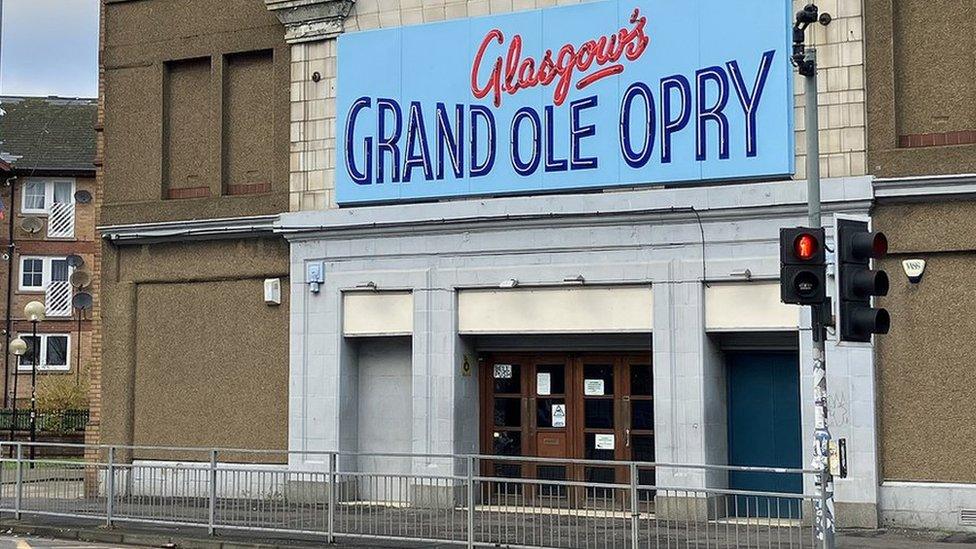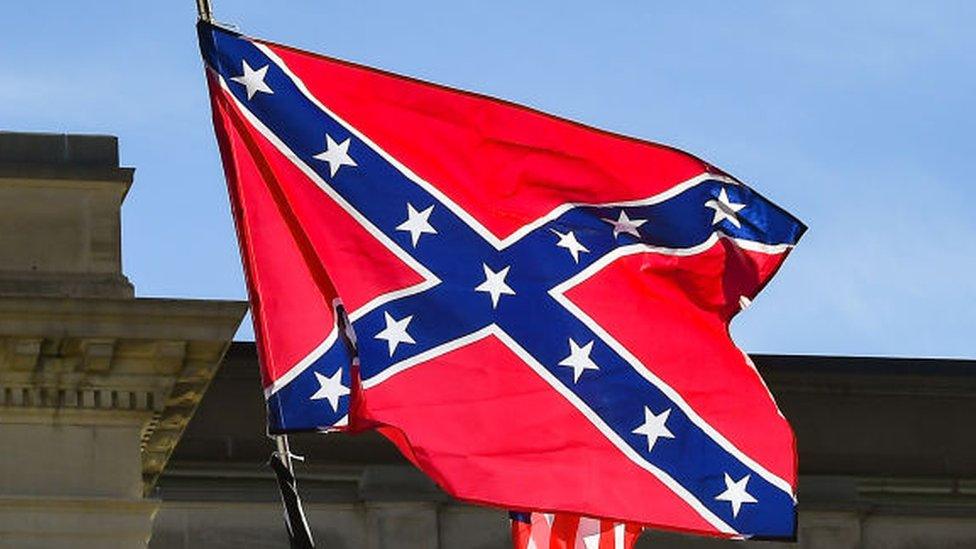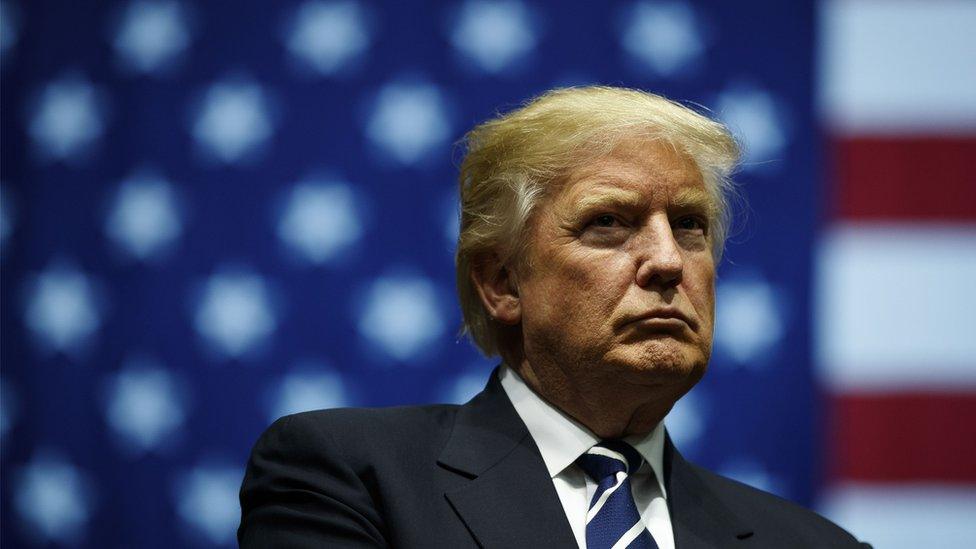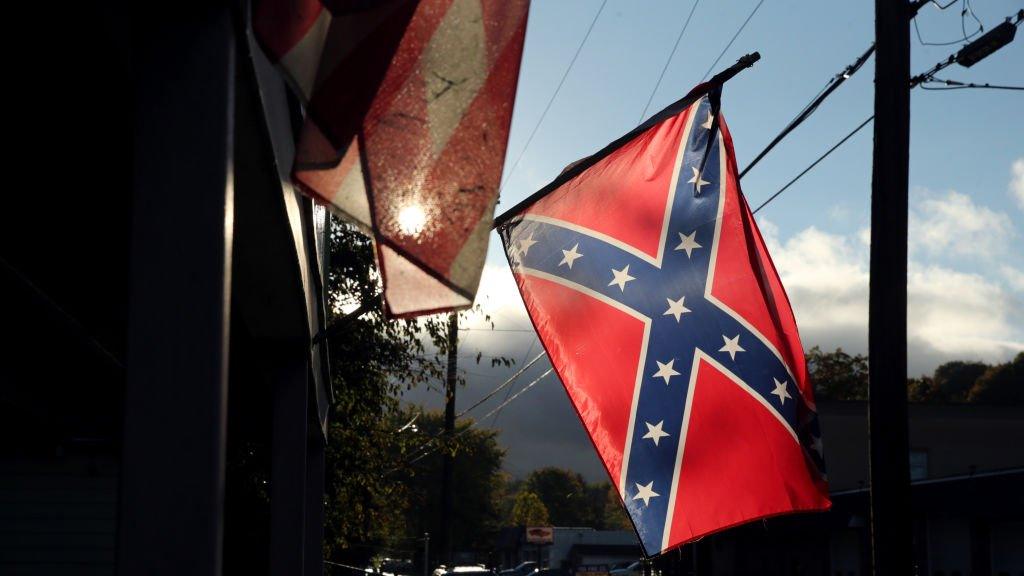Grand Ole Opry in Glasgow votes to ban use of Confederate flag
- Published

Glasgow's Grand Ole Opry is voting on whether to reinstate the Confederate flag
Scotland's most famous country music club has narrowly upheld a decision to ban the American Confederate flag.
Members of Glasgow's Grand Ole Opry voted by 50 to 48 to maintain a ban agreed by the venue's committee last month.
The flag dates to the Civil War era of the 1860s when it was used by slave-owning states in the South.
Many Americans now view it as a racist symbol although others defend it as an emblem of southern heritage.
The Confederate flag had been the centrepiece of a flag-folding ceremony held at the end of each night at the venue.
One member of the Opry, speaking to BBC News on condition of anonymity before the vote, said: "It is a disgrace in this day and age that there are still members who wish to use the Confederate flag for their ceremony."
The original decision to remove the flag had been made by club officials on 9 October - a move that led to the club's president resigning.
Some members had requested a vote to re-instate the flag and a secret ballot was held during an emergency meeting.
In a statement, officials at the Opry said the flag had been "causing offence to visitors and a lot of members" and had led to "disturbances" which had affected the safety of the committee, members and visitors.
Numerous bookings and events had been cancelled because of the connotations of the Confederate flag, they said.

Modern use of the flag in the US

The confederate flag has become a controversial emblem in the US
The Confederate flag has been used by white supremacists including the murderer of nine African Americans at a church in South Carolina in 2015 and participants in a right-wing rally in Virginia in 2017, which resulted in the killing of counter-protester Heather Heyer.
It was also brandished by Donald Trump supporter Kevin Seefried, who was among those jailed for storming the US capitol building in 2021.
Following these events, along with other monuments and symbols of the Confederacy, the flag has been removed from public display in parts of the southern United States.
Mr Trump, the former Republican president, has previously defended the use of the emblem, telling CBS News, external: "I know people that like the Confederate flag and they're not thinking about slavery... I just think it's freedom of speech."
But the Southern Poverty Law Centre, external, which campaigns against racism in the US, has insisted that public bodies "should no longer play a role in distorting history by honouring a secessionist government that waged war against the United States to preserve white supremacy and the enslavement of millions."

The Grand Ole Opry takes its name from the famous venue in Nashville, dubbed the home of country music.
The Glasgow venue held its flag-folding ceremony - dubbed the American trilogy - at the end of each club night.
The Opry says this was to commemorate the estimated 620,000 Americans who died during the US Civil War of 1861-65.
The club's website, external explained: "As the Southern states lost the war, and due to the fact that this part of America supplied us then, as now, with most of the trends that influence our music, dress and dance, it is the Southern flag (often called the Confederate Battle flag) which is folded."
The ceremony was accompanied by the 1972 Elvis Presley hit, An American Trilogy, a song which combines the southern Confederacy's unofficial anthem, Dixie, with the northern Union's Battle Hymn of the Republic.
The website added that the occasion "takes the form of a more traditional salute that encompasses both a flag folding ceremony and a number of shots fired in tribute.
"We dedicate the American Trilogy as a salute in memory of all those men and women lost from both sides," it said.
Related topics
- Published27 August 2021

- Published1 December 2017

- Published17 July 2020
